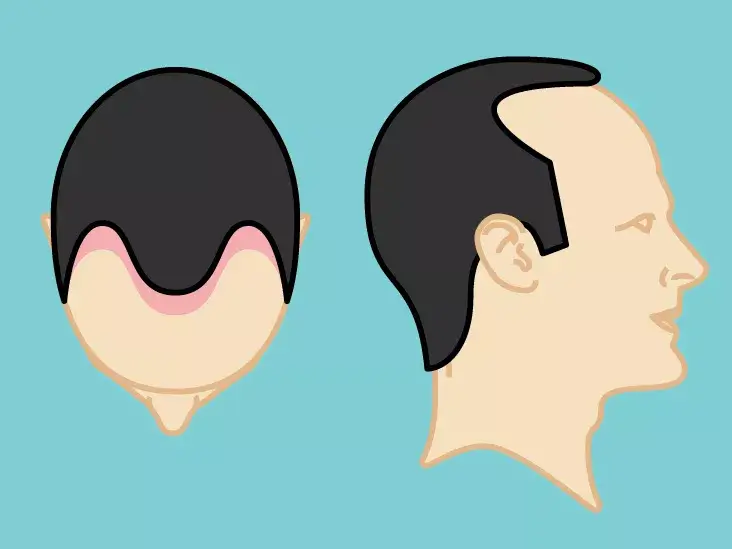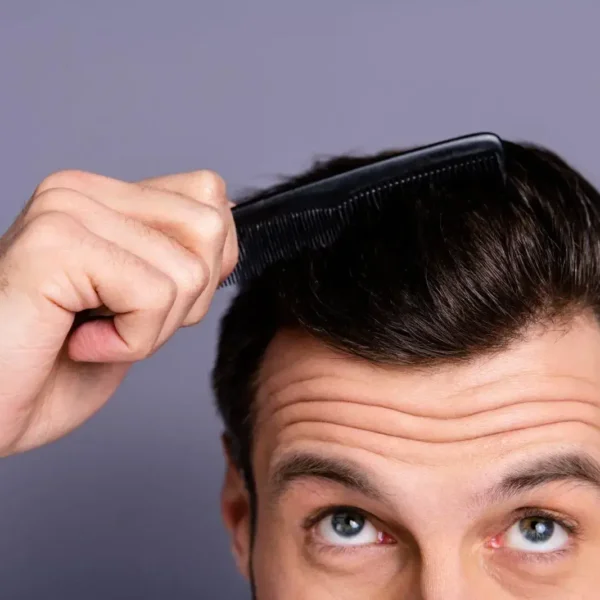Hair transplant is the most common and preferred hair restoration treatment of today since the hair loss problem is a very significant problem for a wide range of people. For those who are interested in the operation, it is very important to be familiar with all the stages of the procedure very closely. As there are so many options for the practice, this requires a detailed searching process. Patients should make sure that every detail about before and after hair transplant are delicately and individually planned by the hair transplant clinic they have chosen.
Before hair transplant Identifying the condition and expectations
A hair transplant starts with a decision; this decision comes from a need or a desire for a better aesthetic and stylish look to restore confidence which is essential to better keep up with the todays world.
While making this decision identifying the hair loss type and level is a determinant step. Norwood Scale is quite helpful to make an objective observation; most of the hair transplant specialists use Norwood Scale to measure the level of baldness. It is possible to find out in which stage your baldness stands according to Norwood Scale at home; you can take pictures of your scalp and have an idea about the level of your hair loss. The experienced medical consultants of Monoplant Hair will be happy to inform you about the stage of your baldness in your online consultation as well.
After you find out about your hair loss level, the next step is to clear up your expectations. In this step, processes of before and after hair transplant becomes more clear to many patients. Having realistic expectations about the hairline, density and overall the procedure contributes to the success rate of the operation; detailed consultation sessions becomes important in this step. While explaining your expectations to the hair transplant specialist, be specific and ask all of your concerns without hesitation.
General medical condition of the patient
Hair transplant is a smooth and safe procedure but it is still a surgical procedure. Medical condition of patients can affect the whole processes of before and after hair transplant. After you decide to have a hair transplant, your current medical condition should be examined very carefully.
Hair transplant is performed under local anesthesia and it may require some medication after the operation; medical condition of patients should be checked to see if they are suitable for anesthesia and taking the post-op medication. Blood tests are useful while examining these; you will also be asked about your detailed medical history and medication you are currently on.
The suitable hair transplant technique
One of the most important thing about the processes before and after hair transplant is the deciding on the true technique which will give the best results for your specific condition.
Techniques used in hair transplant of Monoplant Hair Clinic;
- FUE
- FUT
- DHI
- Micro FUE
- Sapphire FUE
The most widely used hair transplant techniques are FUE and FUT techniques; although they are similar, each of them may be suitable for patients with different types of hair loss. FUE is a rather more developed and preferred technique than FUT; FUE does not leave a clearly visible scar after the operation and the recovery process is quicker.
However, despite the reality of a visible and linear scar, in some cases FUT gives more desirable results. Patients who have increased level of hair loss, large scalp area to treat and limited follicle source on their donor area, benefits more from FUT technique.
There are more hair transplant techniques like DHI, Micro FUE or Sapphire FUE; all of these are different variations of FUE and give high-quality results.
Our experienced and talented hair transplant specialists will explain you about the best technique for a smooth procedure and comfortable periods of before and after hair transplant.
After hair transplant Expected side effects after hair transplant
An important point which concern patients about before and after hair transplant is side effects of the operation. Just like many surgical procedure, hair transplant may have both short term and long term side effects of;
- Pain
- Itching
- Bleeding
- Swelling
- Scarring
- Loss of sensation on scalp
- Shock loss
- Infection
Not every hair transplant patient experience all of these side effects; however, they are accepted as a natural part of the procedure. In case you experience side effects you were not told you may have in your consultation, you should contact your medical consultant and hair transplant specialist to ask about this situation.
Individuals have different body habits and therefore the reactions for certain procedures or medications may differ in each patient. Sun exposure, steam baths, consuming alcohol, taking blood thinners and heavy exercises should be avoided in the early recovery period of hair transplant in order to keep the side effects under control and avoid the unwanted reactions of the body.
Washing session
One significant part of the before and after hair transplant periods is the first washing session. First washing session will be done by our hair transplant specialist in Monoplant Hair Clinic before you get back to your country. Washing the newly transplanted area is a delicate work; after you get back to your country you will be able to wash your hair by yourself. Hair transplant specialist will prescribe you special shampoos and lotions to use in your washing sessions; you should use them until the recommended period ends for the safety of your newly transplanted grafts.
Shock loss
Patience is the key smoothing the after process of hair transplant operation mentally and physically. There is a phase called “shock loss” which usually breaks the patience of people in before and after hair transplant and makes them anxious about the success of their operation. From 2 weeks to 2 months after the operation, patients may observe their transplanted hair to fall out. This situation does not occur after all hair transplant operations; however, if it occurs, there is nothing to be anxious for, because it is a normal phase and your hair will grow back again in a few months.
Final results
In order to comment on the success of a hair transplant operation, 8-12 months should pass after the procedure; this time can extend to 18 months for the crown areas. This is the enough time period for newly transplanted hair to reach their regular growing cycle. After you start to see the final results, you can shave or cut your hair and style it as you wish just like it is your own natural hair.
Many people are concerned about their hair transplant operation to be not permanent; a delicately planned hair transplant operation gives permanent results. If you have given all the information about your medical history, explained your expectations openly, do not have an illness or condition that may interfere your operation and have been careful with the periods of before and after hair transplant, you should not worry about the permanence of your hair transplant. Structure of the procedure is build up to provide permanent solutions to hair loss problem.
Monoplant Hair Clinic designs personalized treatment plans for their patients and provides them with all kinds of necessary before and after hair transplant information. To have a healthier process and more satisfying results you will be informed about all of the pre-operation and post-operation instructions. Our experienced medical consultants and talented hair transplant specialists are looking forward to initiate your hair transplant journey.











